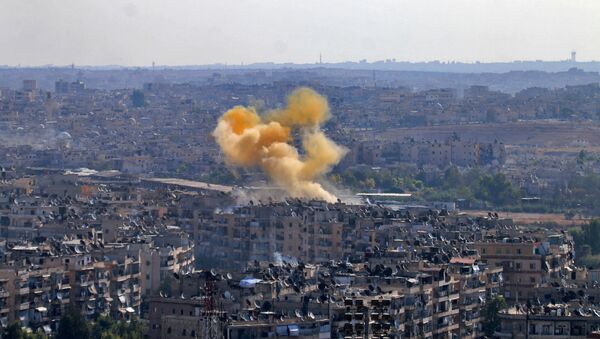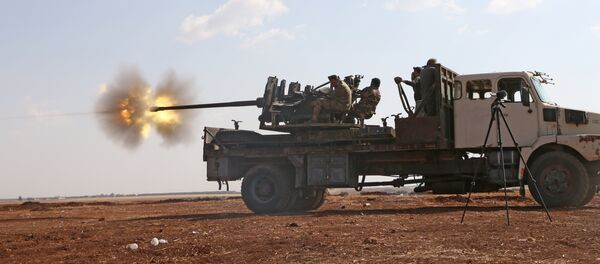"The US is expecting eastern Aleppo to be liberated within few next weeks,” he said, referring to reports from the National Security Council Meeting held earlier this month.
Despite this summer’s negotiations between Moscow and Washington, the corridor for opposition groups to retreat from eastern Aleppo with their light weapons on hasn’t been established. That means that the US-backed rebels won’t give up efforts to win over Aleppo, the country’s major industrial center and most populous urban area.
“For all the Jihadist groups [Aleppo is] a symbol of war in Syria,” Mercouris asserted. “If they have a presence there, they are a serious contender for political power in Syria. If they are thrown out of Aleppo, that ambition dies.”
Citing National Security Council Meeting reports, Mercouris suggested that the US is now seeking to develop a safe zone in north-eastern Syria controlled by Jihadi rebels that Washington could use as a “bargaining chip in future talks of political future Syria.”
“In essence, what they actually mean is partitioning of Syria into a rebel-controlled Northern and North East areas and a government-controlled Western area,” that includes large cities like Aleppo and Damascus.
In this scenario, Mercouris continued, Raqqa, which is now held by Daesh, would become a center for another constellation of Jihadi groups.
“What the US doesn’t want is Raqqa to fall to the Syrian military,” which is why Washington indicated it does not want Moscow or Damascus involved in the liberation of Raqqa.
“If the US and Turkey will be working together in North-East Syria, it might be a way of smoothing relations” between Washington and Ankara, following Turkey’s failed coup attempt on July 15. “The problem with doing it, however, is that it sets Turkey, and by extension the US, against the Kurds in Syria.”
“If the US cannot carry out attacks on Syria trying to achieve its objective in very indirect ways, they are ultimately so counterproductive that it’s better for the US to stop doing them,” Mercouris said.




